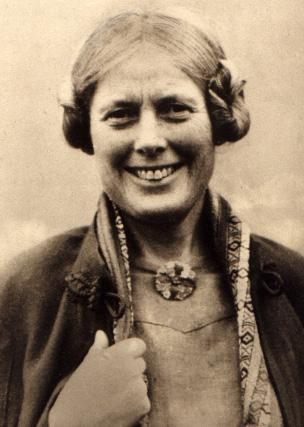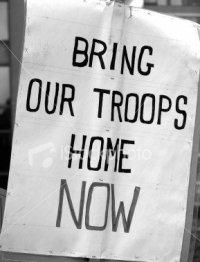20th C. Shapers of Baptist Social Ethics: Muriel Lester
 The 2nd substantive chapter in Twentieth Century Shapers of Baptist Social Ethics, ed. Larry W. McSwain and Wm. Loyd Allen (Mercer University Press, 2008) is also the only chapter that is NOT an original composition for this work. Paul R. Dekar’s chapter on Muriel Lester is a slightly updated version of a chapter in his excellent book, For the Healing of the Nation: Baptist Peacemakers (Smyth & Helwys, 1993).
The 2nd substantive chapter in Twentieth Century Shapers of Baptist Social Ethics, ed. Larry W. McSwain and Wm. Loyd Allen (Mercer University Press, 2008) is also the only chapter that is NOT an original composition for this work. Paul R. Dekar’s chapter on Muriel Lester is a slightly updated version of a chapter in his excellent book, For the Healing of the Nation: Baptist Peacemakers (Smyth & Helwys, 1993).
Paul R. DeKar has had an unusual academic career, having been employed to teach church history and evangelism and missiology. A dual-citizen of Canada and the United States, DeKar was educated at Andover-Newton Theological Seminary before earning a Ph.D. in history at Yale University. He taught both church history and missiology for over 20 years at Ontario’s McMaster University and McMaster Divinity School while founding the university’s peace studies center. DeKar, an ordained minister in the Baptist Convention of Ontario and Quebec, became a convinced pacifist and conscientious objector during the Vietnam War era and joined the interfaith pacifist group, the Fellowship of Reconciliation. He has also been an active participant (and unofficial historian for) in the Baptist Peace Fellowship of North America since its foundation. In 1995, he became Niswonger Professor of Evanngelism and Missions at Memphis Theological Seminary (the one seminary of the Cumberland Presbyterian Church). An author of books on church history, evangelism, missions, and peacemaking, DeKar is also a participant-chronicler of the current rediscovery by Protestants of the virtues of monasticism, becoming a Benedictine Oblate and a member of the only official Baptist monastery in the world (in Australia). DeKar is convinced that only such deep spiritual roots will enable Christians to be authentic and bold peacemakers and witnesses for the gospel.
I know Paul DeKar from our mutual participation in both the Baptist Peace Fellowship of North America and the Fellowship of Reconciliation. He approaches this chapter on Muriel Lester with a historian’s eye for detail and context and with the passion of one who admires his subject and shares many of her convictions and perspectives.
Muriel Lester (1883-1968) , though now forgotten by many, was a pioneer for Baptists and others and once one of the most influential of Christian voices in the world. She was born to wealth, but spent most of her life as a social worker with the urban poor–and even became a socialist politician in order to be a better advocate for the poor. Given more educational advantages than most women in the 19th and early 20th centuries, at a time when the ancient British universities of Oxford and Cambridge were just opening their doors to women and “Nonconformists” (i.e., non-Anglicans such as Baptists), she considered pursuing a degree in literature at Cambridge, but turned her back on higher education in order to dedicate her life to helping the oppressed and downtrodden. By “accident,” she became an unordained pastor and an advocate for women’s ministry (See her 1935 b0ok Why Forbid Us?). A bestselling author on faith and spirituality and an apologist for Christianity, she was nevertheless a pioneer in interfaith dialogue–and a famous friend of Gandhi’s. A pacifist and global peacemaker, she was arrested by her own British government during WWII and, after being released, he passport was conviscated until after the war because, though NO ONE believed her to be a Nazi sympathizer, her peace efforts were deemed to undermine morale during wartime.
British Baptists began in the 17th C. as a persecuted sect that drew almost exclusively from the lower classes. But by the time of Lester’s birth in 1883, their lot had improved–though the Anglican Church’s establishment as the state religion still put considerable restrictions on the freedom of Baptists and other Nonconformists. Lester was raised in a wealthy shipbuilding family. Her father was also a Baptist laypreacher and a local magistrate.
As a teenager, this child of privilege, was exposed to the poverty and hardship of working classes in “Bow,” a London slum. This, along with reading the writings of Tolstoy, convinced her that Christians must work on the side of the poor. She took a “legacy” (Americans would say “inheritance”) and used it to transform an abandoned church in Bow ( a “Strict and Particular” hyper-Calvinist congregation) into a multi-purpose community center and settlement house which she called Kingsley Hall, after a beloved older brother who died young. Along with her sister, Doris, Muriel Lester moved into Kingsley Hall to share the lives of the poor and work to make them better.
The Hall became a settlement house for the homeless, an employment center for those out of work, a center for community organizing and much more. The Hall, led by the Lester sisters, held adult education classes, including of parenting and job skills. Eventually, it opened a Children’s Hall (alternative to the horrors of most contemporary orphanages) and a second settlement house in a different slum.
Kingsley Hall also became a de facto church congregation for many residents and neighbors. Most churches of the time looked down on the poor and would judge harshly those who came to worship without “Sunday best.” So, many residents who wanted to attend church had nowhere else to go. While the Lester sisters never forced residents to come to worship or made any aid dependent on such (as many Christian missions to the poor did), they did conduct services for those that wanted them. Since they could not attract any willing clergy, Muriel became the unordained, de facto pastor of the congregation that met at Kingsley Hall, even re-writing hymns and preaching and serving the Lord’s Supper. (She did not, however, baptize or perform weddings.)
When WWI broke out, Muriel Lester, a convinced pacifist, joined with other Christians in 1914 in forming the pacifist Fellowship of Reconciliation. She announced that these Christians, including herself, would not pronounce a “moratorium on the Sermon on the Mount” for the duration of the war! When the International FOR formed iin 1917, Muriel joined that, too. Later, after she turned the work of Kingsley Hall over to Doris, Muriel became the FOR’s first “Traveling Secretary,” sort of an “Ambassador for Peace” planting FOR chapters on all continents and risking much for the sake of peace. (For instance, after the Japanese invaded China in the 1930s, Lester saw the Chinese suffering first hand and then confronted the Japanese government with their atrocities face-to-face! ) She became a guest of Gandhi’s in India and hosted him at Kingsley Hall when Gandhi came to Britain to negotiate Indian independence.
DeKar’s account shows how much Lester drew from her Baptist faith in her work as a social worker, pastor, socialist politician, and ambassador for peace. But he fails to ask critical questions of Lester as a guide for Baptist social ethics: What was the role of Scripture (other than the Sermon on the Mount) in her approach to moral and social issues? I find no account of this in the collections of Lester’s writings that survive, nor in DeKar’s account. Why is baptism of so little value to her as a pastor? What is her understanding of the nature of the church? What legislative accomplishments did Lester achieve during her time as a socialist politician? How did her faith concerns intersect these matters and how did she view religious liberty and the relation of church and state?
As a Christian pacifist, I am glad that this chapter joins the mini-revival of interest in Lester and her work. What a fantastic Christian peacemaker and justice-seeker! But in a book dedicated to shapers of Baptist social ethics, I wanted more critical analysis than DeKar offered. Of course, Muriel Lester was neither an academic theologian nor Christian ethicist–nor even a theologically trained pastor. She was a widely read practical mystic, but while it is clear that her Christian faith was a driving factor, it is not clear that she retained much specifically BAPTIST influence in her adult life. (If I am wrong about this, DeKar’s chapter does not show me where.)
I suspect that this chapter’s minimal analysis stems from its being lifted nearly unchanged from an earlier volume with a different purpose. Editors McSwain and Allen should have required more rewriting from DeKar for this volume’s purposes.
1 Comment
Sorry, the comment form is closed at this time.

![[PDA - Heathcare NOT Warfare - Sign the Petition.]](https://i0.wp.com/pdamerica.org/images/ads/HealthNotWar_final.jpg)
[…] “Foundations: A Legacy of Social Concern,” covering the pioneers Walter Rauschenbusch, Muriel Lester, and Nannie Helen […]
Pingback by 20th-Century Shapers of Baptist Social Ethics: T. B. Maston « Levellers | March 8, 2009